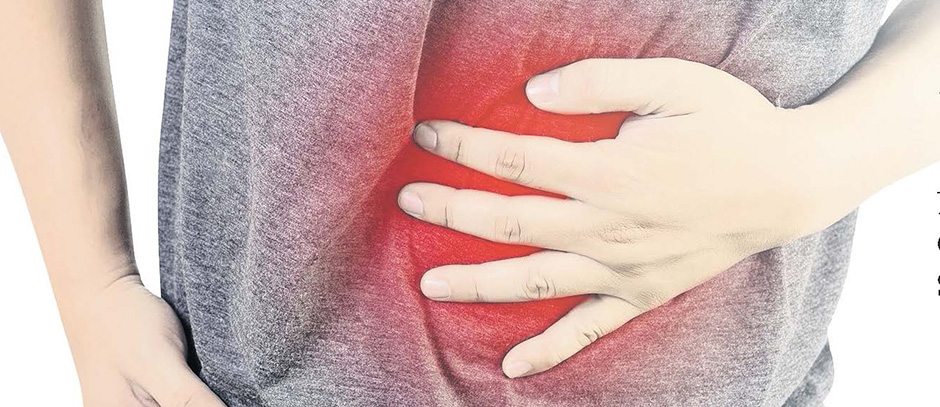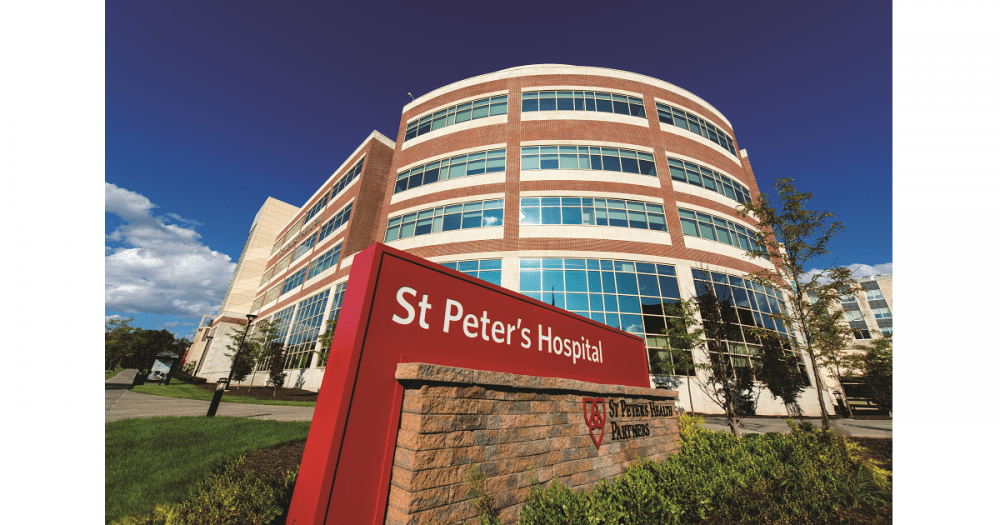
[This piece was written by Rebecca Keim, MD, a general surgeon with St. Peter’s General Surgery, St. Peter’s Hospital.]
This year alone, as many as 200,000 Americans will suffer a hernia as a result of a weakened abdomen. Odds are, you may know someone with a hernia, or may be concerned about symptoms you are experiencing.
What is a Hernia?
A hernia is a weakness or tear in the abdominal wall. This wall serves to enclose and protect the intestines and other organs. If a tear occurs, the contents of the abdomen may push outward. This may cause a bulge that you can see or feel.
For some people, a hernia is present at birth (a congenital defect). Most often, though, hernias occur later in life from:
- Physical stresses, like lifting heavy objects
- Straining due to constipation or difficulty urinating
- Chronic coughing or sneezing
- Previous abdominal surgeries
- Trauma
Additionally, obesity, poor nutrition, certain medications and smoking can increase your risk for hernia formation.
Telltale Signs
Hernia symptoms are usually distinct – a bulge or lump appears in your abdomen or groin. At first, the bulge may only be visible when you laugh, cough or strain, as when lifting a heavy object. You may even be able to you press it back into place.
The type of hernia you have depends on its location. The most common types of hernia include:
- Epigastric (upper abdomen)
- Femoral (upper thigh)
- Incisional (site of a previous surgical incision)
Inguinal (groin) - Umbilical (navel)
When to See a Surgeon
A hernia cannot heal on its own. When left untreated, a hernia can get larger and, in some cases, require emergency surgery. Early surgical intervention to repair a hernia can help relieve discomfort and reduce the risk of emergency complications.
Over time you may notice:
- The bulge growing in size
- A feeling of fullness
- Pain, pressure or a dull ache around the bulge
- Pain when you lift something
- Severe pain or tenderness (a sign of intestinal strangulation – requiring emergency surgery)
Surgical treatment of your hernia repairs the tear and prevents a bulge from occurring again. Hernias can be repaired minimally-invasively using either laparoscopic or robotic techniques or via traditional open incisions.
Hernia repair almost always requires the placement of mesh to prevent recurrence. The most appropriate mesh will be selected based on your particular hernia. Hernia mesh is safe and is necessary to prevent recurrence.
If you are experiencing any of the symptoms listed above, talk with your health care provider. Your primary care doctor may refer you for a consultation with a surgeon who specializes in hernia repair.
For more information on hernias, and the surgical treatment options available, visit www.sphp.com.





